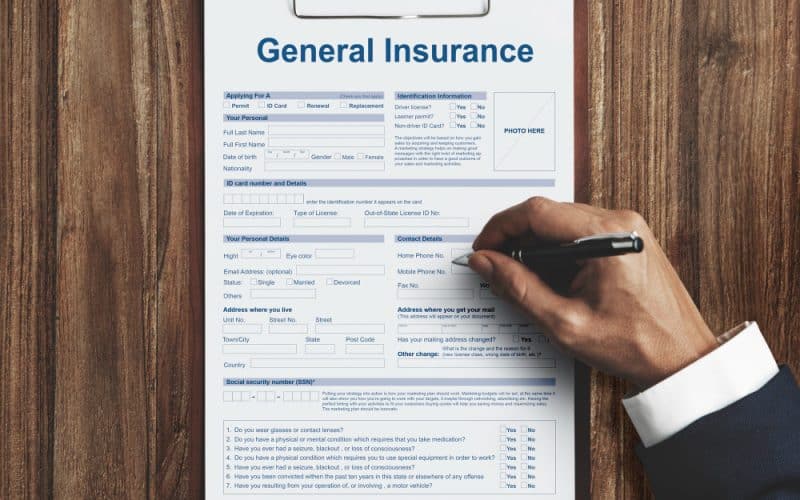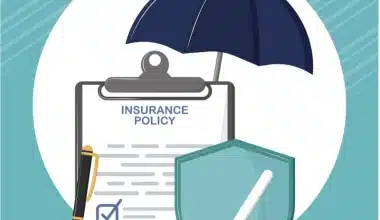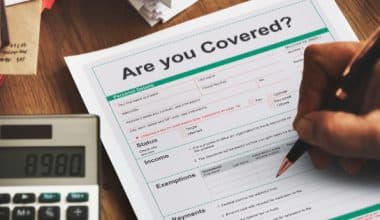General liability insurance is the cornerstone of any successful business, and finding the cheapest providers is essential for business owners to save money on premiums while getting the best coverage for their business. The leading affordable general liability insurance companies offer appropriate limits for businesses, custom options to tailor it to the appropriate industry, and claims and customer service.
Saving money on commercial general liability insurance involves analyzing your risks, reducing your liabilities as much as possible, and comparing insurance quotes from multiple providers.
What is general liability insurance?
General liability insurance, also known as business or commercial liability insurance, is essential coverage for various claims, including bodily injury, property damage, personal or advertising injury, medical payments, products-completed operations, and damages to premises rented to you.
Virtually every small business owner or contractor should have some form of general liability insurance. When buying small business insurance and comparing policies, keep in mind that your rates will depend on your business’s specific features.
General liability insurance is crucial for businesses that interact with customers, clients, or the public and helps protect their financial interests in case of accidents, injuries, or property damage claims.
How general liability insurance works
General liability insurance typically includes the following coverages:
- Bodily injury and property damage liability: This covers lawsuits brought against your business for claims of physical harm or emotional distress caused on your premises or by your operations. Product liability coverage may be included, which covers injuries caused by your product. However, acts such as negligence and misrepresentation resulting from your services are not covered.
- Personal and advertising injury: This covers offenses such as libel and slander, copyright infringement, and other advertising injuries. It also covers malicious prosecution, false arrest, and invasion of privacy.
- Medical payments: This coverage can go into effect even if the person harmed doesn’t sue. It covers an injured non-employee’s medical bills as a result of an accident occurring on the business premises or as a result of business operations.
General liability policies specify a per-occurrence limit or individual claim limit, an annual aggregate limit, and a deductible. You should ensure you understand the exclusions in your policy and fill in any gaps with endorsements or additional coverages.
Top cheap general liability insurance providers
Thimble
Thimble offers a business owner’s policy that includes business interruption insurance and commercial property insurance along with general liability. With Thimble, you can quickly get on-demand or monthly general liability coverage online, modify it as you go, and pause it for up to 30 days once. Also, you can add optional coverages like hired and non-owned auto or equipment breakdown.
The company’s policies are occurrence-based, providing better coverage than claims-made policies. Occurrence-based policies cover you for incidents that occurred while the policy was in effect, even if you’ve since canceled your policy.
However, you may not be able to get all the coverages you need from Thimble—the company doesn’t offer commercial auto policies, for example, or general liability policies to businesses with more than $10 million in annual revenue.
Thimble’s general liability policies are available with $1 million or $2 million limits (per occurrence and aggregate). According to the company, on average, business owners pay around $42 a month or $504 a year for general liability insurance.
Pros
- Provides flexible and temporary coverage
- Offers a comprehensive BOP with optional add-ons
- All policies are occurrence-based
Cons
- Doesn’t offer commercial auto
- BOP limited to businesses with no more than $10 million in annual revenue
Hiscox
Hiscox is one of the cheap general liability insurance providers; their policy for small businesses covers up to $250 per day in lost earnings and includes electronic data liability coverage. Also, you can purchase most other coverages your business would need through Hiscox, including professional liability, medical malpractice, workers’ compensation, and commercial auto.
Hiscox offers quick online quotes and sends your policy documents electronically so you can get coverage for your business quickly. Also, you may be able to reduce your premium by tailoring your coverage to the specific risks your business faces.
Hiscox also offers higher general liability limits for small businesses than some competitors—up to $2 million. Zero-deductible plans are available, too. A business owner’s policy (which includes both general liability and commercial property coverages) is available from Hiscox for businesses with 10 employees or less.
Most businesses will pay at least $30 per month for general liability insurance from Hiscox.
Pros
- Robust coverage, including electronic data liability
- Customize your policy with other common small business coverages
- Fast online quotes and electronic policy documents
Cons
- BOP only offered to businesses with 10 employees or fewer
- BOP is not available in select states
Chubb
Chubb is another cheap general liability insurance provider and the leading commercial lines insurer in the U.S. It offers standalone general liability coverage or a BOP for businesses with up to $30 million in revenue, which includes general liability insurance. You can get a foreign package if you have employees taking business trips overseas.
Outside of its small business offerings, Chubb provides a full range of coverages for businesses of any size, including many specialty coverages other companies don’t offer.
Chubb provides online quotes for some small businesses with less than $2 million in annual revenue, but if your business earns more than that, you’ll need to speak with an agent to get your quote.
Chubb offers small business general liability policies starting at $250 and business owner’s policies starting at $450.
Pros
- High revenue limits that allow for bigger small businesses
- Rated A++ (Superior) for financial strength by AM Best
- Few complaints with the NAIC relative to the company’s size
- Offers coverage for foreign operations
Cons
- No online quote for businesses with greater than $2 million in annual revenue
Next Insurance
Next Insurance offers an entirely online quote and application with same-day coverage available, and you can chat with the company live if you need help. Once you pay for your policy, you’ll get an instant, live certificate of insurance that you can easily update with additional insureds or share with clients.
It also offers a BOP that includes business interruption coverage. You can also get a standalone general liability policy with the company, which costs as little as $11 per month for some very small, low-risk businesses.
Next also offers many basic commercial coverages, such as workers’ compensation, commercial auto, and professional liability. However, it focuses on small businesses and offers few specialized coverages for industry-specific risks.
General liability insurance from Next can cost as little as $11 per month, and more than 70% of Next’s customers pay less than $75 per month. Next also offers up to 25% in savings through various discounts.
Pros
- Offers a shareable live certificate of insurance
- Offers a BOP with business interruption coverage
- Online quote and application with live chat support
- Claims decisions may be made in 48 hours
Cons
- Fewer specialized coverages than other insurers
Nationwide
Nationwide offers a general liability policy that you can customize with a range of food service endorsements, such as product liability, liquor liability, and hired and non-owned auto coverage. General liability policies offer up to $4 million in annual coverage, which is more than several competitors.
The company also offers comprehensive restaurant insurance through its Food Service Program BOP which is available to restaurants that bring in less than $5 million in revenue per location. It offers 10 restaurant-specific endorsements, including credit card forgery, spoilage coverage, and food contamination coverage.
Nationwide offers general liability policies starting at $300 annually and business owner’s policies starting at $350 annually.
Pros
- Offers specialized BOPs for food businesses
- A+ (Superior) financial strength
- Many endorsements to its Food Service Program BOP
Cons
- Must contact an agent to get a quote
How do I find cheap general liability insurance providers?
General liability insurance covers common business risks, such as a customer’s bodily injury at your business, damage to a customer’s property, or an advertising injury. If a customer blames your business for an injury or other harm, a general liability policy would help pay for any resulting legal fees and medical payments.
While it might seem financially sound to buy the least amount of coverage possible to reduce insurance rates, doing so could cost you more in the long term if you face an expensive lawsuit. Fortunately, that’s not the only method of lowering costs.
Here are four ways you can save money on a general liability insurance policy:
Shop around and compare quotes
Getting quotes from multiple insurance companies is one of the best ways to find affordable general liability insurance. You could go straight to the source and contact each carrier directly, or you could work with an online insurance marketplace like Insureon that represents several providers.
Keep in mind that the policy with the lowest premium isn’t always the best option. You should also consider its deductible and coverage limits, along with any exclusions it might have.
Bundle general liability with another policy
Many small business owners save money on general liability insurance with a business owner’s policy (BOP). A BOP combines general liability coverage and commercial property insurance in one policy and is usually less expensive than buying liability and property coverage separately.
A BOP typically provides coverage for:
- Injuries to customers, clients, and other third parties
- Damage to property owned by your business or a third party
- Product liability for items manufactured, distributed, or sold by your business
- Libel, slander, and copyright infringement
Depending on your profession, you may be able to bundle other types of coverage as well, such as professional liability insurance or business interruption insurance.
Manage your risks to keep your premium low
Your claims history is a significant factor in setting your general liability premium. Risk management programs, training, and safety reviews with your employees can help you avoid claims and keep your premium at an affordable rate.
Test your products and make sure instructions are clear
To avoid product liability lawsuits, you’ll want to ensure the safety of your products. This is true for manufacturers, retailers, and wholesalers, as anyone in the supply chain could be held liable for a defective product or similar issue.
Any product you sell should undergo rigorous safety testing before you offer it to the public. Whatever documentation or instructions you include with your products should be easy to understand and explain any risks associated with their use.
Reduce accidents at your business
If your business is open to the public, make sure your entrances and exits are well-lit and all areas are free of obstructions. This includes walkways and parking areas. Inspect your property on a regular basis to prevent slip-and-fall accidents before they happen.
If any unsafe issues arise, such as a wet floor or a broken step, make sure you post a warning sign and fix the problem promptly. Document your efforts for ongoing repairs, and establish a procedure for employees to report and eliminate hazards.
Establish a protocol for other people’s property
If your business handles other people’s property, make sure you follow the best practices within your field and train your employees on risk management. For example, employees at a computer repair shop might be prohibited from bringing drinks into the repair room, or a bar might prohibit customers from charging their phones at the counter.
Depending on your industry, you may need to secure additional coverage for belongings in your care, custody, or control, such as garage keepers insurance for customer vehicles stored at a repair shop.
As with other safety measures, make sure you document your efforts and check that your employees are following the correct procedures.
Set rules for advertising and social media
Make sure anything you publish—whether on social media, your website, or advertisements—avoids any risk of personal injuries and advertising injuries. That includes libel, slander, invasion of privacy, and reputational harm.
For example, a customer might file a lawsuit if you post a photo of them without permission on your business’s Facebook page. If you compare your business to other companies, make sure you can prove whatever you claim.
Establishing a set of rules for advertising campaigns and social media posts, and offering guidelines for your employees, can help avoid a lawsuit.
Customize your general liability policy
When buying a general liability policy, it’s important to make sure you’re fully covered in case of an accident, while also keeping your premium as low as possible. You’ll need to take a close look at your business and its coverage needs, which may require help from an agent.
Some ways of saving money on a general liability premium are rather easy. For example, many insurance companies offer a discount if you pay your entire premium on an annual basis rather than monthly.
Choose the right policy limits and deductible
How you set your policy limits and deductibles can have a tremendous impact on your business insurance costs. Every general liability policy has a per-occurrence limit and an aggregate limit. The per-occurrence limit is the maximum amount the insurance provider will pay on a single claim. The aggregate limit is the most it’ll pay for all claims during the policy period, which is usually one year.
The higher your coverage limits, the more expensive your premium. This means that while it is tempting to choose lower limits, you could end up paying more in the long run if you have an expensive claim but not enough insurance to cover it.
If you have several liability policies, another option is commercial umbrella insurance. This policy offers an affordable way to increase your insurance coverage across multiple policies, not just your general liability policy.
Finally, you can save money by choosing a higher deductible, but there’s also a tradeoff. Insurance companies won’t provide any benefits until you’ve paid the deductible, so make sure it’s an amount you can easily afford.
Examine the exclusions and other insurance options
Your general liability policy may include coverage you don’t necessarily need. If that’s the case, see if you can remove it to lower your premium. You can also consider a different policy that doesn’t have those extras.
Alternatively, you will want to make sure the policy’s exclusions do not leave out risks you want to insure. You may be able to add an endorsement to a policy that’s lacking the coverage you want, such as product liability insurance.
When it is time to renew your policy, your insurer might conduct a premium audit to make sure your risks match your coverage. They’ll look at your business and its financial records to make sure your insurance coverage accurately reflects your risks.
How much does general liability insurance cost?
General liability insurance premiums are calculated based on several factors, including:
- Industry risks
- Location
- Business operations
- Number of employees
- Policy limits and deductible
Factors that influence cost of general liability insurance
Your monthly premium for general liability insurance will vary not only based on the company and policy you choose but also based on factors affecting your business’s risk. Commercial insurance companies tend to consider the following factors when they determine your policy cost:
- Business Operations: If your business operates in a high-risk industry, like construction, you’ll pay more for general liability insurance than a low-risk business, such as a retail shoe store.
- Location: If you run your business in a busy city, you might pay more for general liability insurance than a company operating in a less-populated rural area.
- Business Experience: Newer small businesses are likely to pay more for general liability insurance than established businesses since they have less experience managing risks.
- Claims History: If you’ve never filed a business insurance claim, that may indicate to insurers that you’re taking actions to prevent risk, which will likely lower your premiums. On the other hand, past claims could reveal to insurers that your business is risky, causing them to charge you more, in some cases.
- Policy Choices: The policy limits, deductibles, and any endorsements you choose will impact the price of your policy. A higher deductible means lower premiums, while higher limits or add-ons mean higher premiums.
Recommended Articles
- Small Business Insurance: What Is It & How Does It Work?
- Small Business Liability Insurance: How Does It Work?
- CATASTROPHIC INSURANCE: Is Catastrophic Insurance Worth It
- Business Insurance Quotes: Getting Insurance Quote Online
- Business Insurance: Definition, Types & What Does It Cover?






